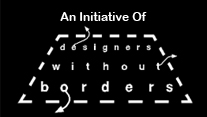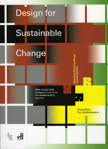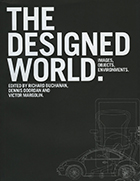David Stairs
The rains came late this year. It is generally wet in east central Africa from October on, but this year the deluge burst in November. Every night it rains incessantly, and every morning the world is covered in mud. The roadsides are rutted, the sewers are full of silt. Towering thunderstorms often accompany the rain. A week ago yesterday one such storm occurred. The sky cracked open with peals of thunder loud enough to frighten the all-night watchman in our apartment compound. It was that loud. The power went out at one minute past midnight, but I didn’t think much about it. Uganda’s experiencing “load shedding,” an engineering buzz-word for the government’s solution to a critical power shortage. After running turbines at the hydroelectric facility on the Nile River in parallel for many years, the reservoir behind Kira Dam became so depleted that electric production had to be scaled back until the water levels could be restored. The day after the storm, when power hadn’t returned, I assumed the storm had possibly damaged some infrastructure. Sure enough, the electric power company linemen visited the next day and verified that the line was damaged. Then they conveniently took the weekend off. There is no such thing as weekend overtime in sub-Saharan Africa. The “global village” concept doesn’t really come home to roost until you’re sitting in a capital city but living like a bush dweller. For a couple days my son and I survived comfortably enough. We couldn’t sterilize water, let alone take hot showers, but we went out for dinner and certainly didn’t starve. After four days the inconvenience of not being able to charge a cell phone or check e-mail began to be annoying. We fired up the small portable generator in our compound, but this couldn’t save the contents of our refrigerator. The house-girls where we stay prepared one meal for us on charcoal stoves. Otherwise, we had to be strategic about what food we purchased, and found ourselves going to bed earlier each night. At six days tempers were flaring. The generator had broken down. Our landlords, employees of an international NGO, were frustrated by their inability to get any office work done. Power had been restored to many of the houses in the neighborhood, but repeated visits to the utility company brought no satisfaction for us. Our European neighbors out back, also without power, were running their loud portable generator around the clock, making it difficult to sleep. I offered to pay the utility company a bribe to settle the problem, but our landlords just laughed at me.
 photo by Chris Stairs
photo by Chris Stairs
Earlier this week the President of Uganda traveled to Brussels, ostensibly to address an EU summit on African development. But he also went to plead with the French and Belgians for investment Euros to help solve Uganda’s power shortage. Meanwhile, U.N. Secretary General Kofi Annan presided over an international conference on global warming. He warned that those who can least afford the trials of climate change will be the ones to bear the brunt of the damage, and urged all nations to redouble their efforts to cut emissions. Today the power was finally restored. I’m told someone else paid the bribe. Seven-and-a-half days will not seem like much of a service interruption to those familiar with the deprivations suffered by victims of hurricanes and tsunamis. So what’s the design lesson here? Nothing really, unless it’s that we Americans are pretty set in our brand-worshipping watt-consuming ways. If power goes out in the depths of a winter blizzard we are usually surprised. If it stays out for more than a few hours we are damned pissed off, never stopping to realize that most of the people in this world live completely off the grid and make do with paraffin and charcoal. Did you know that paraffin is a major cause of injury and death in Africa? Children drink it by mistake. And what about the widespread deforestation due to charcoal production? Fortunately, these are topics for another post. For the moment let’s say I am chastened and humbled by the recognition of my electricity addiction. While I did search for workarounds to the temporary deprivation in an attempt to maintain my expensive habits, ultimately I had to abandon my movie-viewing, hot-shower-taking, Internet-surfing, computerized lifestyle for the simpler pleasures of reading by candlelight. Give it a try sometime next winter. Kofi Annan will thank you, and I’ll personally shake your hand, with my charcoal-powered joy buzzer.
David Stairs is the founding editor of Design-Altruism-Project.











November 29, 2006 at 7:38 am
7.5 days is rough. We never had it that bad in Malawi. A humbling and frustrating experience. It makes me realize that there is more I could do so as not to be such a power hog…